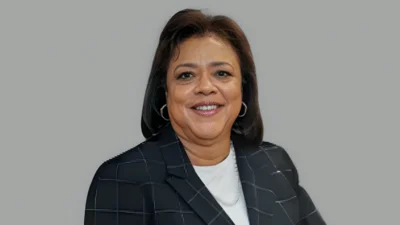Although Gov. Bruce Rauner’s approval of a bill in August to create an automatic voter registration program in Illinois was largely met with media praise, it stunned some critics – especially since he had vetoed a similar measure a year ago.
According to an Aug. 12, 2016, article in The Chicago Tribune, Rauner rejected last year’s version of the bill over concerns about potential voter fraud, vowing to work with legislators to reach a compromise.
Proponents say the new law is a necessary reform that will modernize the election process, making it more fair because it better engages low-participating groups in the political process.

Logan Churchwell, Public Interest Legal Foundation
| provided by source
On its website, the nonpartisan lobbying group Common Cause Illinois calls automatic voter registration “a commonsense reform,” and claims the practice will “bring up to 2 million eligible citizens into the democratic process.”
The Brennan Center for Justice, an arm of New York University’s School of Law, lauded the new program, claiming it will add 1 million new voters while saving money and increasing accuracy.
“Illinois’ legislation is notable for having the potential to bring the reform to a broad range of state agencies, as opposed to other efforts around the country that focus largely on driver’s license-issuing offices,” reads a statement on the Brennan Center’s website.
But whether it adds 1 million or 2 million voters, Logan Churchwell says the law is based on the same faulty premise that has historically supported calls to increase voter registration. Churchwell serves as communications and research director for the Public Interest Legal Foundation, which represents the American Civil Rights Union on election integrity matters.
“There always an argument that some group of people are on the sidelines and that if we make this change, they’ll be on the playing field,” Churchwell told the Prairie State Wire. “With automatic voter registration, you cannot make the argument that you are going to bring a new set of people in because the people that are being brought in are going to the DMV or the Medicaid office anyway. The question, ‘Do you want to register to vote?’ was going to come to them regardless.”
One of the primary problems with casting a wider net to capture more voters involves vetting those new voters to ensure they meet citizenship or other criteria. Churchwell cites the case of Margarita Fitzpatrick, a Peruvian native facing deportation after immigration officials found out she had illegally voted in two elections.
As NBC News reported in April, Fitzpatrick registered to vote in error when she applied for a driver’s license in Illinois. Her defense was that the clerk repeatedly asked her if she wanted to vote, despite being a non-U.S. citizen. Earlier this year, the U.S. Supreme Court declined to hear her appeal.
Churchwell said adding an intermediary who transmits unverified information based on DMV or other data to election officials garbles the transfer of information.
“Now you have the same state automating that procedure that gave her a one-way ticket back to the country she did not want to be in,” Churchwell said. “Whenever you disrupt that system, the opportunity to correct mistakes goes out the window.”
It’s ironic, from the ACRU’s perspective, that advocates for the same political party pushing for automatic voter registration (it was a plank in Hillary Clinton’s platform, Churchwell said) is also funding court cases challenging voter identification laws. Automatic voter registration is essentially requiring DMV or other officials to relay the names of new voters to election boards after they’ve been passport-verified. In other words, it’s a form of back-door voter identification, Churchwell claimed.
“So much of election policy doesn’t have to do with partisan politics,” he said. “It really has to do with which entity wants to reform election law to match a perceived advantage. But the contradiction shows they’re not looking through this policy proposal on all angles.”
The “new and improved” SB 133, sponsored by Rep. Andy Manar (D-Bunker Hill) and which the governor signed, is said to have added more robust built-in safeguards allowing officials to verify eligibility before registering anyone to vote.
NBC’s Chicago affiliate reports that the new system will operate under the Secretary of State’s office and will automatically sign people up to vote when they obtain a driver’s license or other ID.
"SB 1933 removes a barrier to voter participation by modernizing the voter registration process to make it simpler and more convenient for Illinoisans to vote," Rauner explained in a press release. "We hope this streamlined process will encourage more voter participation, so that constituents' voices are heard and their interests are represented."






 Alerts Sign-up
Alerts Sign-up